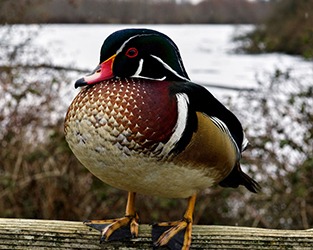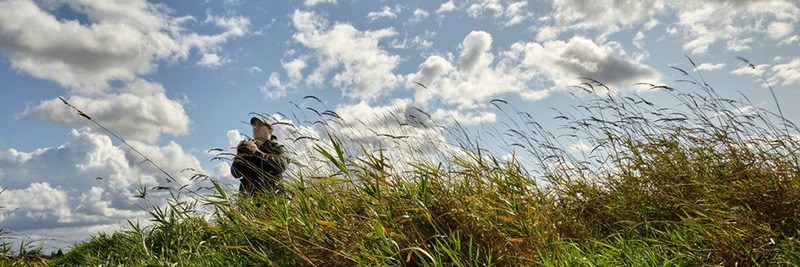February 2 is World Wetlands Day! This awareness day commemorates the 1971 adoption of the Ramsar Convention on Wetlands. It’s also the perfect time to reflect on the global importance of these ecosystems, and to renew our commitment to protecting wetlands in Canada.
This year’s theme is “Wetland Biodiversity: Why it Matters.” There are so many reasons to care about the animals, plants, and other organisms that populate wetlands – including the simple fact that they are fascinating to see and hear!
Tune in to some wetland birds
Why not take a break and immerse yourself in a vibrant wetland right now? Relax and enjoy this audio clip, or if you’d like to test your ID skills, see how many bird species you can identify in the first minute (answers are at the bottom of the page):
The clip was recorded near Sheho, SK, so birders familiar with that region may have an advantage.
Enjoy wetlands & monitor biodiversity
Want to spend more time experiencing wetland biodiversity in 2020? Read about the opportunities below, and consider volunteering to monitor wetlands for one of our Citizen Science programs in your region.
The data you collect leads to action by Migratory Bird Joint Ventures and other partners across Canada that protects and restores wetlands. For example, data from the Great Lakes Marsh Monitoring Program are being used to identify which wetland areas are a priority for work by the Ontario Eastern Habitat Joint Venture to conserve non-waterfowl marsh-dependent bird species in Ontario.
Saskatchewan
The Saskatchewan Breeding Bird Atlas is seeking volunteers to collect bird observations from wetlands (and other habitats) in priority areas across the province. To learn more, contact Saskatchewan Atlas Coordinator LeeAnn Latremouille or visit the Atlas website.

Wood Duck Photo © Philip Jessup
Great Lakes Region
Volunteers are needed to survey for birds and/or frogs for the Great Lakes Marsh Monitoring Program throughout the Great Lakes Watershed in both Canada and the U.S. While volunteers are needed throughout the basin, we are looking for new volunteers in Wisconsin, Michigan, and New York as well as Eastern Ontario. Check out available survey routes on our online map. For information on the program, please contact Kathy Jones.
Québec
New volunteers are needed to survey marsh birds for the Québec Marsh Monitoring Program – particularly in the Abitibi-Témiscamingue, Mauricie, Saguenay-Lac-St-Jean, and Bas-St-Laurent regions. Andrew Coughlan would be happy to hear from those interested.
Maritimes
We need volunteers to help expand the Maritimes Marsh Monitoring Program and provide a better understanding of wetlands in our region. This program covers both freshwater and salt marshes throughout the Maritimes. Please contact Lucas Berrigan if you wish to volunteer.
More ways to enjoy wetlands
Wetlands and the species that live in them can provide valuable recreational experiences for local residents and tourists alike. Go out and enjoy wetlands, and let others know how much these special places mean to you. The more that people recognize the many benefits of wetlands, the more likely that they will act to preserve them.
Wetlands can be great settings for cross-country skiing, biking, hiking, canoeing, photography, birding, and much more. To minimize harm or disturbance to wildlife and the natural area, be aware of any rules in place at the wetland you’re visiting. Be sure to “pack out what you pack in” and leave as few signs as possible that you were there. Whether you are on land or on the water, stick to open routes (trails, boardwalks, channels) to avoid damaging vegetation. Watch wildlife quietly and from a distance, and be careful not to introduce invasive species to the wetland (e.g., plant seeds stuck to your clothes, live bait).

Photo © Philip Jessup
Bird species vocalizing in the first minute of the audio clip: Yellow-headed Blackbird, Wilson’s Snipe, Sora, Sedge Wren, Red-winged Blackbird, Gray Catbird, Common Yellowthroat, Canada Goose, American Bittern, and American Coot.
